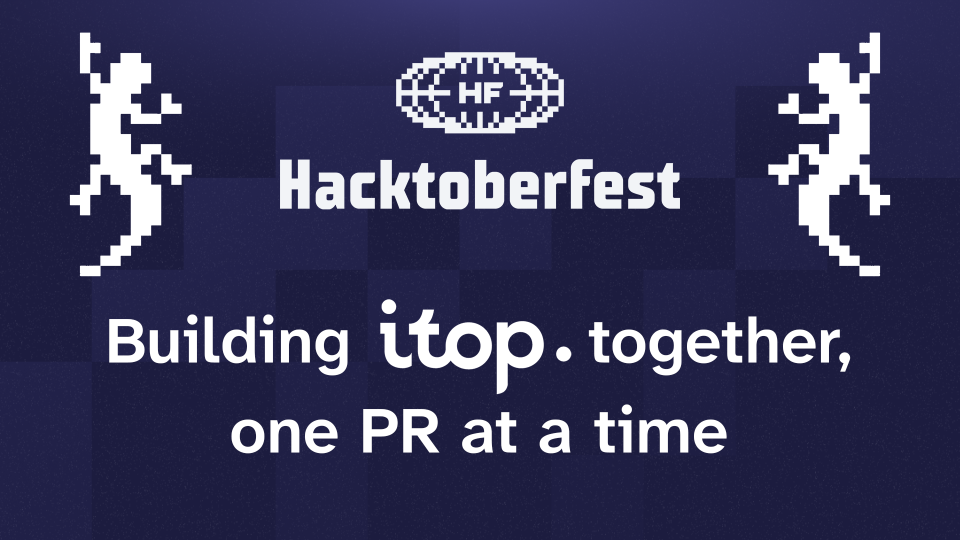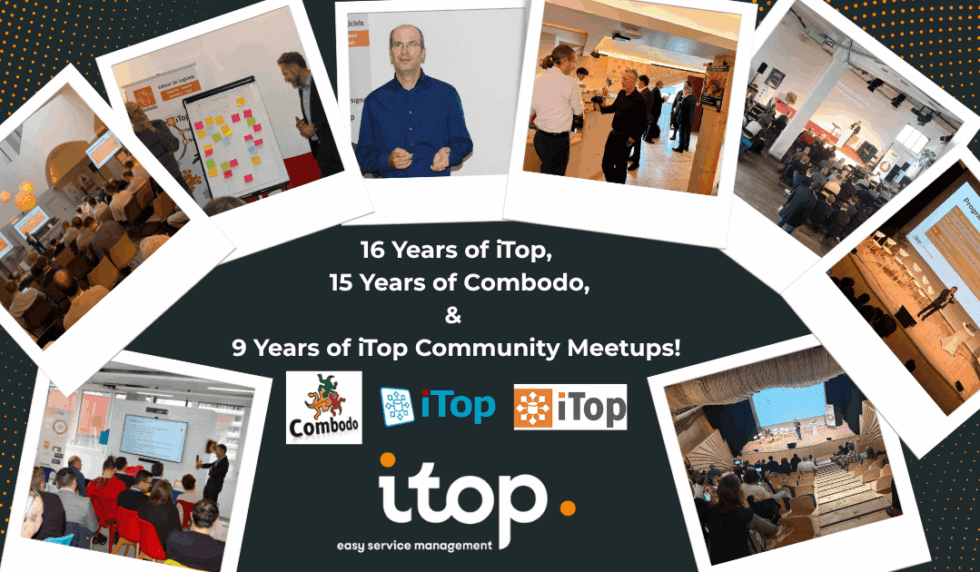Any conversation about digital technology inevitably includes Artificial Intelligence. That said, what do we do about it? And above all, what does it mean in practical terms for IT management? This is the question many IT Department heads are asking themselves today, as they try to cope with pressure from above, user expectations, and supplier promises that can be pretty vague. At Combodo, and with our German-speaking partner ITOMIG, we’ve chosen a pragmatic response: we explain what’s possible, useful and responsible. And we build realistic solutions to meet our customers’ challenges.
What AI (really) enables in ITSM today
AI as part of the IT service management toolbox is no longer the stuff of science fiction. Today, there are a number of practical uses that have already been tested in the field. Combodo and ITOMIG have identified four key ones.
- Help for support staff : AI can help support staff with repetitive, time-consuming tasks. For example, providing automatic ticket categorization, suggesting standard responses, summarizing a long customer conversation, or identifying similar tickets that have already been dealt with. “The aim is not to replace humans, but to save them time. We like to compare it to ‘exoskeletons’, or even ‘electric bikes’: the employee still does the work, but with less effort,” says Combodo CEO Erwan Taloc.
- Smoother self-service : Many organizations are looking to cut down the number of Level 1 requests. Chatbots often come up in projects. The idea is to respond directly to simple user requests (password reset, routine procedure, etc.). But beware: it’s not a miracle cure, and certainly not a replacement for human support. It’s an add-on that works in well-defined scenarios.
- Problem anticipation : AI can analyze ticket histories to identify trends: an unusual increase in issues for a given application, or a type of outage that often recurs around the same time period. This is what we call predictive analytics.
- Faster reporting : AI can also be used to create tables or graphs just by interpreting the request in natural language rather than having to build a complex query.
What AI doesn’t do (or doesn’t do well)
With all the hype, it’s tempting to believe that AI can do anything. But the truth is more subtle.
- No, AI does not replace staff : Some organizations are still looking at the question from a budgetary angle: “Can we cut our support staff by 25%?” Combodo and ITOMIG believe this is misguided: “The requests that service centers deal with are often complex, specific and require human judgment“, Combodo CEO Erwan Taloc points out.
- No, AI is not always reliable : AI tools are not infallible. Denis Flaven, Combodo’s Technical Director, explains: “They can make mistakes, misinterpret, and produce vague answers. And users have little tolerance when a machine makes mistakes, as opposed to a human. Choosing use cases carefully is essential.”
- No, AI isn’t free : Even if certain tools seem affordable, AI comes at a cost in terms of hardware (infrastructure, GPU servers), usage (billing by number of requests or tokens), and implementation (installation, training, supervision…).Some software companies charge up to €30 to €40 per user per month for an additional AI module. The cost has to be weighed against actual gains. It’s precisely to avoid these excesses or blind spots that Combodo and ITOMIG have defined a clear strategy, which is reflected in iTop’s developments.
Combodo & ITOMIG: a clear and ethical response
Combodo and ITOMIG have joined forces to draw a clear line in response to the sometimes vague promises of AI in ITSM: yes to AI, but not under any conditions. “It’s not about bringing in AI just because it’s trending. It has to be useful, controlled and in line with our open source values!” says David Gümbel.
Our stance is based on two strong pillars, which directly influence the technical choices we make for iTop :
- AI as an aid, not a replacement : The aim is not to downsize teams, but to relieve staff of repetitive tasks. Summarizing complex support conversations, classifying a ticket, translating a technical request: these are concrete, helpful use cases that can be implemented quickly. “We want AI to drive efficiency, rather than serve as an instrument for cutting jobs,” Erwan Taloc stresses.
- Controlled, sovereign AI within the tool : Data sovereignty is a central issue, and iTop will not be introducing any opaque, embedded AI but rather, a generic, open module that the customer can configure:
- choice of AI engine (proprietary, open source, local or cloud),
- choice of what data is processed,
- no data sent by default outside the corporate environment.
“The user is in control. They decide where the data goes, and what engine is used to process it,” explains Denis Flaven. This stance addresses a two-fold reality: growing mistrust of external platforms, and the need to avoid Shadow AI, with users turning to ChatGPT to handle sensitive data as they lack official tools.
What you’ll find in iTop by the end of 2025
In concrete terms, version 3.3 of iTop will incorporate the first AI features, which can be activated and customized, without reliance on a designated provider.
A native, open AI integration layer
It lets you connect iTop to an AI engine of your choosing, secure data input/output flows, and create the functionality you wish.
David Gümbel sums it up: “The idea is to provide a solid technical base, and give each customer the freedom to use it as they see fit.”
Simple, useful use cases that can be deployed in iTop Professional Plus
Available soon in iTop Professional Plus, and developed by ITOMG, the first modules on the roadmap will aim for rapid gains:
- automatic ticket summaries (including tickets with multiple conversations),
- category or service suggestion based on ticket content,
- rewording or automatic translation to facilitate responses.
“These modules have already been tested and used internally by ITOMIG staff. We don’t deploy anything we haven’t experienced ourselves,” concludes David Gümbel.
For Combodo and ITOMIG, it’s not about having an “AI-ready” badge. What clients want are practical tools that help them do their job better, faster and without losing control. By choosing to build an AI that serves support staff, is integrated without being restrictive, and open without being naïve, Combodo and ITOMIG are establishing a sound, responsible and consistent framework.


